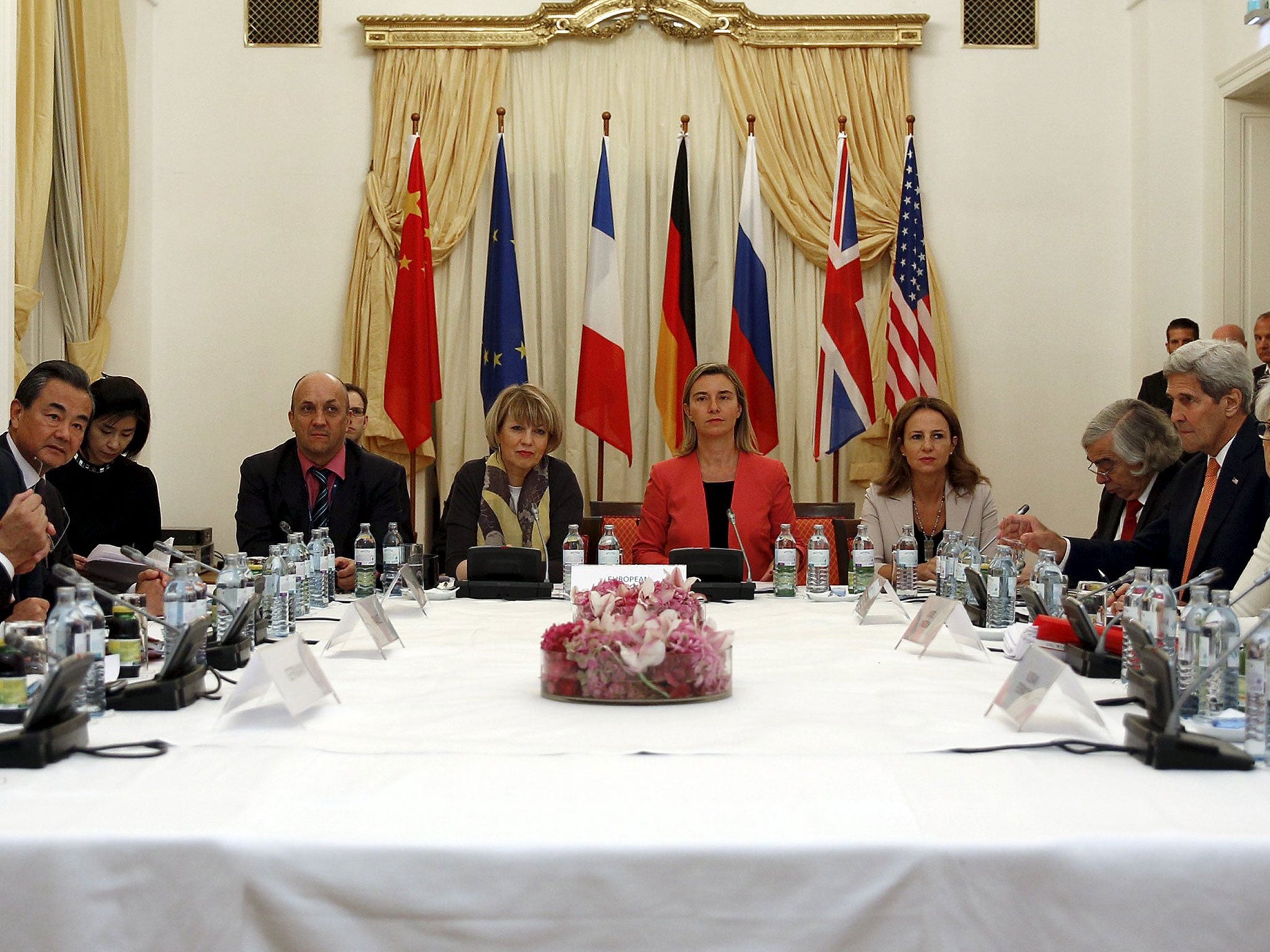Iran nuclear talks: Deal with world powers edges closer, but Israel attacks negotiations
Benjamin Netanyahu has set up a Twitter account to attack the negotiations

It has been more than a decade in the making, but world powers and Iran were within touching distance of an accord over Tehran’s nuclear ambitions on Monday night.
Hopes that a deal could have been reached before the deadline – the fourth since talks began in Vienna on 27 June – appeared to have been scotched, however. The remaining issues – Iran’s insistence that a UN arms embargo be lifted and that any resolution following a successful outcome of the talks be written in a way that stops Iran’s ongoing nuclear operations being described as illegal – will be talked over again on Tuesday.
The proximity of a deal was clear last night when Iran’s President, Hassan Rouhani, tweeted “#IranDeal is the victory of diplomacy & mutual respect over the outdated paradigm of exclusion & coercion. And this is a good beginning” just moments before his foreign minister, Mohammad Javad Zarif, told Iranian media that talks would stretch into another day.
There had been a feeling since Saturday that talks were making headway. The US Secretary of State, John Kerry, who has been in the Austrian capital for 17 days, spoke to reporters after meeting with Mr Zarif, on Saturday night. “We had a very good meeting,” he said. “Positive. I think we’re getting to some real decisions. So I will say, because we have a few tough things to do, I remain hopeful. Hopeful.”
Mr Kerry’s comments were followed by those of the French foreign minister, Laurent Fabius, who on Sunday said that the talks were in their “last phase”.
However, the negotiations between Iran and the so-called P5+1, the five permanent members of the UN Security Council, which includes Britain, and Germany, appeared to tread water on Monday. The outstanding issues are not material to Iran’s nuclear capability or to its immediate aim of sanctions relief.
Years of talks have centered on uranium enrichment, inspections by the International Atomic Energy Agency (IAEA) and sanctions. Recent months, however, have seen something of a breakthrough and in April Barack Obama announced the framework of a deal.
That agreement included an outline plan on the number of centrifuges Iran would be allowed to operate, the amount of uranium it would be allowed to store and provisions for inspections by IAEA officials. It also included a timetable of the lifting of sanctions.
Western powers have long held that Tehran’s nuclear programme is designed to give the Islamic Republic a nuclear weapon, and UN sanctions have prevented it from realising that goal. Tehran insists that its nuclear activities are peaceful and that it has an unwavering right to produce energy through nuclear power.
Iran’s opponents argue that any lasting deal that follows April’s agreement would be a bad deal. The Israeli Prime Minister, Benjamin Netanyahu, set up a Twitter account on Monday to attack the negotiations, while in an editorial, the Jerusalem Post newspaper said that the expected deal would mean that Iran would “be able to run, not sneak, to A-bomb”.
The Jewish state is widely believed to be a nuclear power already, although Israeli officials refuse to comment on the matter. Saudi Arabia has hinted that it will move to acquire a nuclear device if it believes that Iran could attain one.
Israel has long lobbied to ensure that the talks with Iran reach a settlement that rules out any Iranian nuclear activity. Instead, the country is now expected to focus its efforts on persuading members of the US Congress to vote down the deal. Israel knows that many American politicians are nervous about any deal.
Subscribe to Independent Premium to bookmark this article
Want to bookmark your favourite articles and stories to read or reference later? Start your Independent Premium subscription today.

Join our commenting forum
Join thought-provoking conversations, follow other Independent readers and see their replies